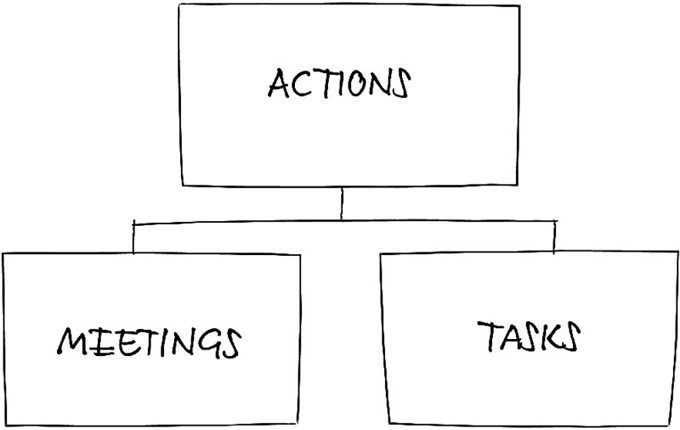1 CONSOLIDATE YOUR WORK
Our work day is made up of two types of actions — meetings and tasks (see figure 1.1). Whatever your industry or role, to work effectively you need to manage both of these types of work. I believe we face a fundamental challenge in managing these two activities, as they are very different, and require different strategies to organise them well.

Figure 1.1: meetings and tasks
Meetings vs tasks
Meetings are what we call fixed work — that is, they are fixed in time: they need to happen at a specific time, and they have fixed start and (usually) finish times. This is mainly because other people are involved in meetings, so a time and location must be agreed to. Some roles are driven by meetings, while other roles may entail just a couple of meetings each week.
When you are not in meetings, you are probably doing tasks. Sending emails, writing reports and preparing for presentations are examples of tasks. Tasks may be date-specific without being time-specific. Unlike fixed meetings, tasks usually need to be done by a certain time, rather than at a certain time. Because of this they have a level of discretion attached to them. It is up to you when you do them. I call these actions flexible. You might commit to calling someone tomorrow without specifying what time you will call. This makes it a task rather than a meeting. I believe what is needed more ...
Get Smart Work now with the O’Reilly learning platform.
O’Reilly members experience books, live events, courses curated by job role, and more from O’Reilly and nearly 200 top publishers.

